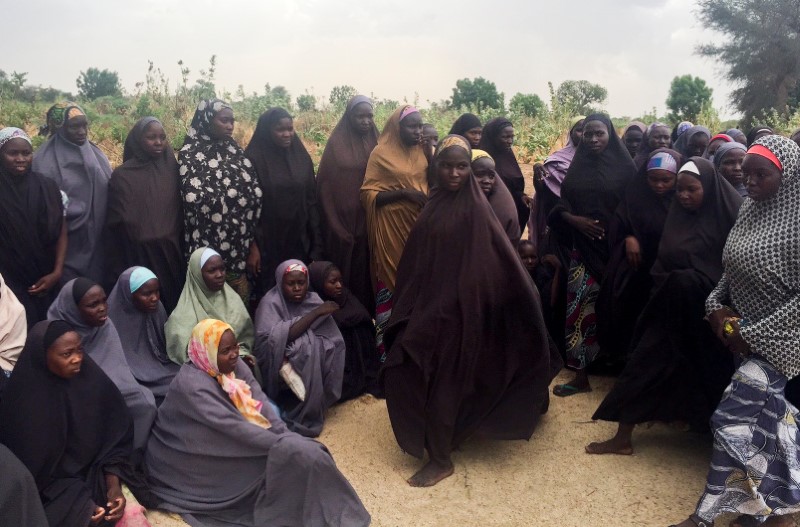
By Paul Carsten
ABUJA (Reuters) – More than 100 girls who were kidnapped by Boko Haram militants in the Nigerian town of Chibok in 2014 are ready to return to normal life after being released and receiving psychological and medical treatment, the government said on Friday.
Some 270 girls were originally abducted by the Islamist group but 82 were freed in May this year after mediation, adding to 24 who were released or found last year. The girls have been receiving psychological and medical care in the capital, Abuja, as part of a government rehabilitation program.
“All the 106 girls are now fully recovered, ready for re-integration with their families and the larger society, and to go back to school,” Aisha Jummai Alhassan, minister of women affairs, told a news conference.
“They are now stabilized and most of their traumatic stress disorder symptoms have been overcome and previously frequent incidents of flashbacks, insomnia and nightmares have now been successfully brought under control,” she said.
Some of them underwent surgery, and a prosthetic limb was provided for a girl who lost a leg while in captivity. Four babies were also said to be in good health.
Of the 270 girls who were originally taken, about 60 escaped soon afterwards but around 100 are still believed to be in captivity. Alhassan said negotiations to secure their release were ongoing.
Boko Haram has killed more than 20,000 people and displaced more than two million during an eight-year insurgency aimed at creating an Islamic caliphate in northeast Nigeria.
The Chibok case provoked global outrage and a celebrity-backed campaign to raise awareness of the girls’ plight, but aid groups say Boko Haram has kidnapped thousands more adults and children, many of whose cases are neglected.
A United Nations human rights committee called in July for Nigeria’s government to step up efforts to rescue all women and girls abducted by Boko Haram and ensure they returned to school without stigma.
(Reporting by Paul Carsten; Writing by Alexis Akwagyiram; Editing by Mark Trevelyan)




